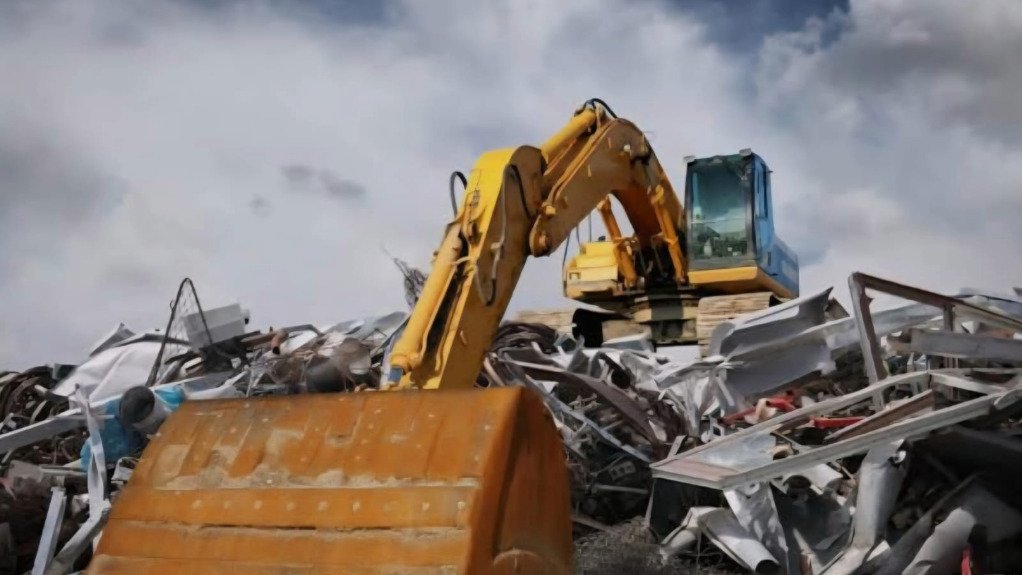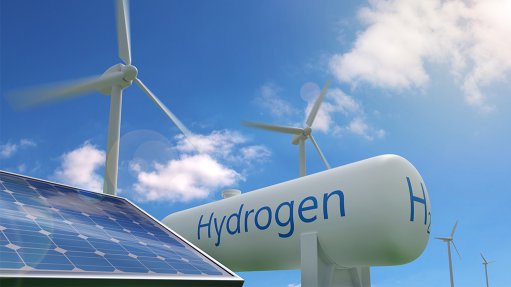Recycling bodies strongly reject amendments to scrap price preference system
Three recycling organisations have strongly rejected the International Trade Administration Commission of South Africa’s (Itac’s) amendments to the price preference system (PPS) for scrap metal, which were Gazetted on October 31. In a response endorsed by Recycling Association of South Africa CEO Nancy Strachan, Metal Recyclers Association chairperson Quintin Starkey, and Scrap Recycling Coalition chairperson Mark Fine, the changes are described as “a betrayal of fair trade and economic justice”. The full response follows:
Itac chief commissioner Ayabonga Cawe's defence of the newly Gazetted PPS amendments, as reported in Engineering News on November 3 , 2025, is nothing short of a brazen dismissal of the recycling industry's plight. Describing a mere 5% reduction in the ferrous scrap discount—from 30% to 25%—as a "balanced" decision that "will not make any of the parties happy" is not policy wisdom; it's a mockery of the exhaustive submissions we've made over years, perpetuating a broken system that drains the economy while enriching a select few.
Itac's fundamental error lies in its counterfactual assumption: the correct baseline is the complete absence of the PPS, not the existing 30% PPS. Itac's amendments (e.g., reducing ferrous scrap discounts from 30% to 25%) appear to use the existing PPS as the baseline, comparing proposed changes to the status quo rather than to a no-PPS scenario. This risks underestimating broader economic distortions, such as export stifling or recycler burdens, as no explicit analysis of policy absence is mentioned in the Gazette or the article. Mr Cawe's quotes suggest a "compromise" that displeases all parties, but without a zero-baseline analysis, it clearly favours mini-mills over metal recyclers, creating inequities in obligations like seller-funded transport.
For over a decade, PPS—described by Cape Gate in their submissions to the Competition Tribunal as the child of cartel behaviour—has forced recyclers to subsidise mini-mills with below-market prices, stifling exports and threatening jobs in a vital circular economy sector. By the end of the first five years, the entire value chain agreed it was unworkable and too difficult to administer. Itac's own investigation recommended replacing it with an export duty—a path endorsed by Minister Ebrahim Patel. Yet, after the 2021 duty law, a shadowy working group, consisting of guilty cartel members, ensured PPS's survival, benefiting mini-mills that siphon six to eight billion rand annually from the most vulnerable into their pockets, with little to no evidence that these benefits are passed on to consumers or contribute to broader economic goals.
The PPS is quoted by ArcelorMittal South Africa (AMSA) as one of the main reasons why AMSA Newcastle/Vereeniging have closed, directly causing the loss of 3 500 direct jobs due to the unequal competitive playing field between AMSA and the PPS-supported scrap-based mini-mills. This closure is set to cause more than 100 000 job losses in the downstream manufacturing industry, as jointly estimated by the 18 leading downstream steel-dependent manufacturing membership associations, including the Department of Trade, Industry and Competition’s own five registered steel-intensive Export Councils. These18 associations formally pleaded with the Government to do everything possible to keep AMSA Newcastle/Vereeniging open, as the mostly government co-owned scrap-based mini-mills cannot supply the quantity, product range, and/or safety-critical graded products produced by Newcastle/Vereeniging and required by these associations' members. Additionally, the Industrial Development Corporation has struggled to attract buyers or partners for AMSA’s assets, as potential investors are deterred by the ongoing PPS. The longer-term consequence is accelerated deindustrialisation in South Africa.
Itac’s claim of balance ignores this history as well as our submissions explaining that for every one person employed to melt a ton of steel, it takes 100 people to collect, sort, process and deliver the same one ton of scrap metal. The informal scrap collectors, numbered at over 400 000 of the most vulnerable South Africans, face declining earnings due to depressed scrap prices enforced by PPS. Retaining seller-funded transport costs—disproportionately hammering remote recyclers, as XA's Donald MacKay rightly notes—exacerbates inequities. Removing the 15-day purchase period invites abuse, allowing delays that pressure sellers into even deeper concessions. And where is the transparency? We demand Itac release the "economic modelling" and data underpinning these changes, so we can expose if recycler inputs were genuinely weighed or conveniently sidelined.
Moreover, Itac refuses to remove the "seller pays for transport" clause in the face of overwhelming evidence that it perpetuates cartel behaviour by allowing market segmentation—buyers in Gauteng dominate, squeezing out distant suppliers and distorting competition. No robust financial modelling appears to support this retention, as it contradicts economic principles and disregards submissions on its impracticality.
Compounding this, semi-finished export data released by Itac today (3 November 2025) reveals a startling truth: scrap is being melted into semi-finished products and exported, bypassing duties on raw scrap. This evasion undermines the PPS entirely, funnelling value abroad while recyclers suffer. As we receive overwhelming whistleblowers information alleging cartel activities, policy abuses and unfair practices, we reiterate that a full inquiry be conducted into the PPS and potential cartel conduct without delay, exposing these systemic failures before more jobs and sustainability efforts are lost.
This isn't compromise; it protects 5% of the steel value chain while overlooking the other 95%. As AMSA's operations wind down amid policy distortions, we urge the immediate review and potential scrapping of the PPS in favour of market-aligned reforms. South Africa's sustainability and industrial future require a more equitable framework.
Article Enquiry
Email Article
Save Article
Feedback
To advertise email advertising@creamermedia.co.za or click here
Press Office
Announcements
What's On
Subscribe to improve your user experience...
Option 1 (equivalent of R125 a month):
Receive a weekly copy of Creamer Media's Engineering News & Mining Weekly magazine
(print copy for those in South Africa and e-magazine for those outside of South Africa)
Receive daily email newsletters
Access to full search results
Access archive of magazine back copies
Access to Projects in Progress
Access to ONE Research Report of your choice in PDF format
Option 2 (equivalent of R375 a month):
All benefits from Option 1
PLUS
Access to Creamer Media's Research Channel Africa for ALL Research Reports, in PDF format, on various industrial and mining sectors
including Electricity; Water; Energy Transition; Hydrogen; Roads, Rail and Ports; Coal; Gold; Platinum; Battery Metals; etc.
Already a subscriber?
Forgotten your password?
Receive weekly copy of Creamer Media's Engineering News & Mining Weekly magazine (print copy for those in South Africa and e-magazine for those outside of South Africa)
➕
Recieve daily email newsletters
➕
Access to full search results
➕
Access archive of magazine back copies
➕
Access to Projects in Progress
➕
Access to ONE Research Report of your choice in PDF format
RESEARCH CHANNEL AFRICA
R4500 (equivalent of R375 a month)
SUBSCRIBEAll benefits from Option 1
➕
Access to Creamer Media's Research Channel Africa for ALL Research Reports on various industrial and mining sectors, in PDF format, including on:
Electricity
➕
Water
➕
Energy Transition
➕
Hydrogen
➕
Roads, Rail and Ports
➕
Coal
➕
Gold
➕
Platinum
➕
Battery Metals
➕
etc.
Receive all benefits from Option 1 or Option 2 delivered to numerous people at your company
➕
Multiple User names and Passwords for simultaneous log-ins
➕
Intranet integration access to all in your organisation




















